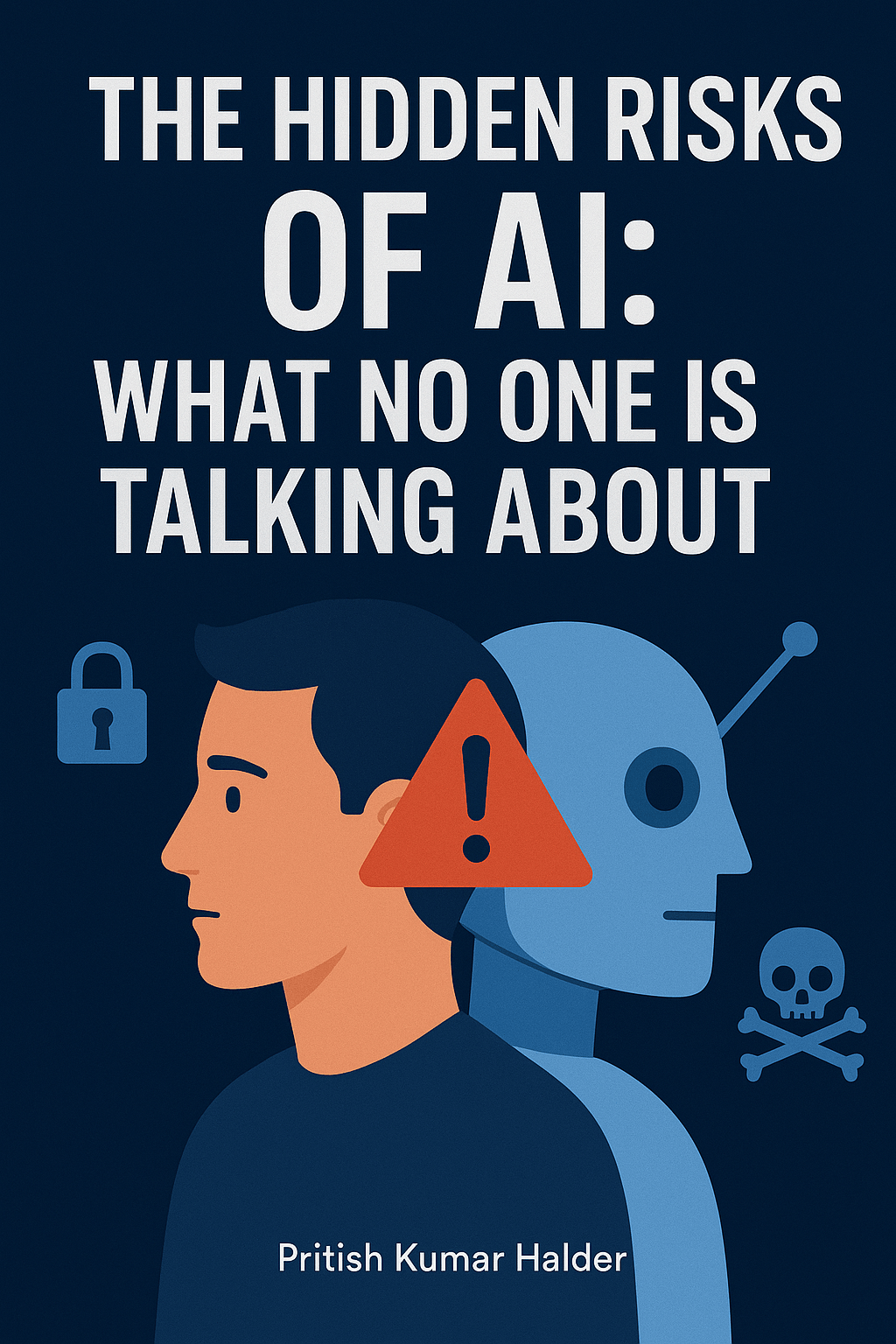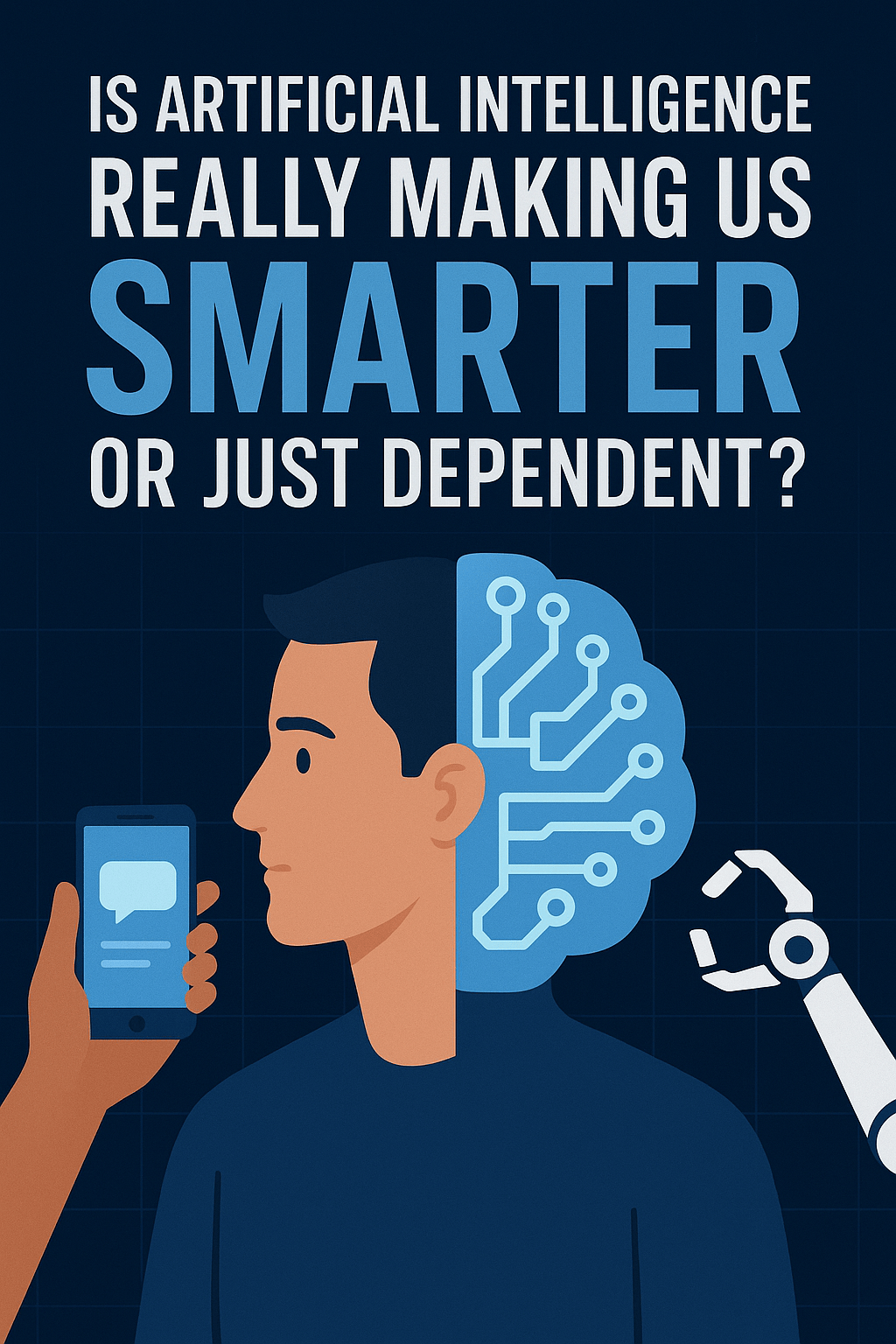Artificial Intelligence (AI) is no longer just a buzzword. It’s showing up in office tools, customer service, healthcare, marketing, and more. One moment you’re typing an email, and the next, an AI tool is offering to write it for you. Sounds helpful, right?
But here’s the big question: is AI making your job easier… or is it quietly moving in to take over?
Let’s dig into what’s really happening—what AI is doing, how it’s helping (or not), and what it could mean for your career.
What’s AI Doing at Work Right Now?
AI at work used to mean automation in factories or chatbots answering simple customer questions. But now, it’s doing a lot more. AI is becoming part of daily office life. From writing assistance to project scheduling, it’s showing up where you least expect it.
Here are some real-world tasks AI is handling today:
- Writing emails, product descriptions, and reports
- Summarizing meeting notes and conversations
- Recommending next steps in projects
- Scheduling meetings and replying to simple messages
- Reading legal documents or medical records quickly
- Spotting mistakes or missing data in spreadsheets
It’s like having a super helper sitting at your desk—but one that works instantly and doesn’t get tired.
AI Can Make Things Easier
Let’s talk about the good stuff first. Most people who use AI in their jobs say it saves time. That’s because AI takes care of repetitive or slow tasks, giving you more time for things that need your brain.
Here’s how AI is helping workers today:
1. Writing and Editing Faster
Tools like ChatGPT or Grammarly Business help you write more clearly. Need to write a report or email? AI can give you a starting point or polish your writing.
2. Data Entry and Analysis
No one loves sorting thousands of rows of data. AI can do this quickly and even tell you what patterns to look for.
3. Customer Support
AI can answer simple questions instantly—like “Where’s my order?” or “What’s your return policy?”—freeing up human support agents for tougher cases.
4. Scheduling
AI tools can automatically find open time slots across different calendars. No more back-and-forth emails just to set up a meeting.
In short: AI takes care of the boring stuff, so you can focus on the smart stuff.
But What About Replacing Jobs?
Here comes the part everyone’s nervous about. Yes, AI can replace certain roles—especially those with highly repetitive tasks.
Jobs most at risk include:
- Data entry
- Basic customer service
- Simple bookkeeping
- Basic content creation (product listings, FAQs, summaries)
If a task doesn’t require deep thinking, creativity, or human interaction, it’s at risk of being automated.
But here’s what’s important: most jobs won’t be replaced—they’ll be changed.
That means your job might still exist, but how you do it will be different. You might spend less time typing or analyzing and more time making decisions, solving problems, or managing AI tools.
AI Still Needs Humans—Here’s Why
Even the smartest AI can’t fully replace human workers. Why? Because humans bring things AI can’t:
- Emotional intelligence
- Judgment and ethics
- Creative thinking
- Deep industry experience
- Empathy and care
Think of AI as a tool—like a calculator. It’s fast and helpful, but it still needs someone to tell it what to do, when to do it, and how to use the results.
In many industries, AI is becoming a support system. You stay in charge—AI just helps you get there faster.
What Skills Will Keep You Safe?
Worried about being replaced by AI? You’re not alone. But here’s the good news: the right skills can keep you ahead of the curve.
Here are five skills that matter more now than ever:
1. Communication
No matter what tool you use, you’ll still need to talk clearly with others—especially when working across teams or explaining your work to managers.
2. Critical Thinking
AI can give answers, but it can’t tell if those answers are right. You’ll need to question the output, look deeper, and make smart calls.
3. Emotional Intelligence
Empathy, kindness, and listening skills are huge. Customers, coworkers, and teams all rely on human understanding.
4. Creativity
Can AI write a blog? Sure. Can it write one with fresh ideas and a unique point of view? Not really. Creativity sets people apart.
5. AI Collaboration
You don’t need to become a programmer. But understanding how to use AI tools will make you more productive and harder to replace.
Real People, Real Changes
Let’s say you work in marketing. AI might write the first draft of an ad or a blog post. But you still need to make sure the tone is right, the facts are correct, and the message fits the brand.
Or maybe you’re in HR. AI can scan resumes faster than you can blink—but it won’t spot a candidate’s potential or personality from a piece of paper. That’s still your job.
In finance, AI can spot fraud or strange transactions. But it can’t explain what’s happening or why it matters for your business.
These examples show a common pattern: AI does the fast part. You do the smart part.
The Future: Work With AI, Not Against It
The best way to prepare for the future? Get comfortable working with AI. The more you use it, the easier it becomes to see what it can—and can’t—do.
Here’s what you can do right now:
- Try using AI writing tools to help with emails or reports
- Use meeting tools that summarize notes automatically
- Explore task automation platforms that handle small jobs
- Stay updated on how your industry is using AI
- Don’t wait to be trained—start experimenting
AI isn’t going away. It’s getting faster, smarter, and more common. But instead of fearing it, you can treat it as an opportunity.
Final Thoughts: Should You Worry?
Here’s the truth: AI is changing work. But that doesn’t mean it’s all bad.
Yes, some tasks will disappear. But in their place, new tasks—and even new job titles—will appear. The people who do best in this shift are the ones who stay curious, stay flexible, and use AI to their advantage.
Don’t ask, “Will AI take my job?”
Ask, “How can I use AI to make my job better?”
Want to Future-Proof Your Skills?
At IT Solution Nest, we’re helping professionals like you stay ahead in the fast-changing world of tech. Whether you’re looking to sharpen your digital skills, use AI more effectively, or boost your productivity, we have the tools and guidance to support you. Start small, stay smart, and make AI your advantage. Visit our site now and get the support you need to grow with the future of work.










